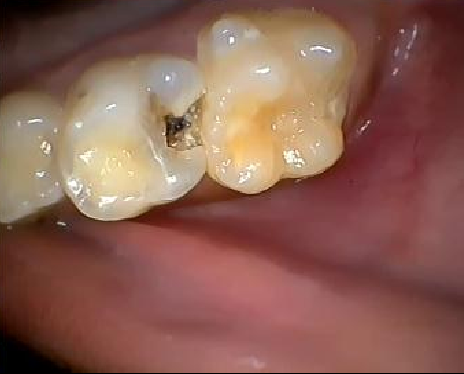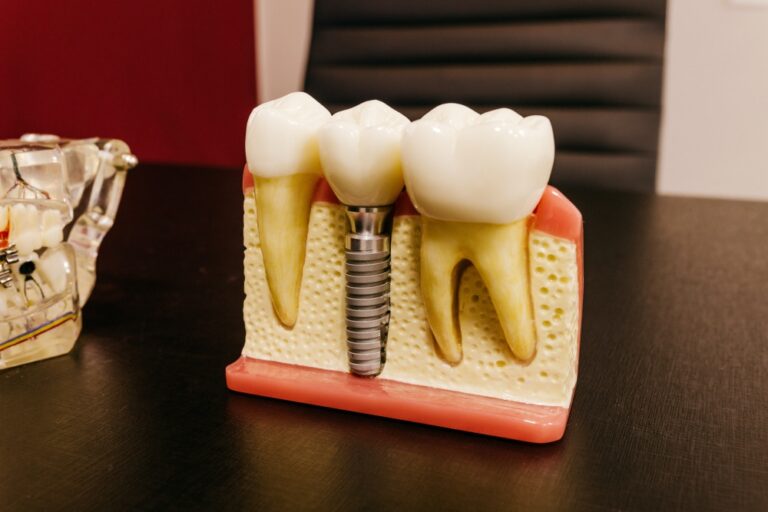Good oral health goes far beyond a cavity-free smile
Many of us have experienced the excruciating pain of a toothache — the kind of pain that over-the-counter medications just won’t alleviate. While this type of dental problem may be due to a cavity, an infection in the gums can also cause it. When left untreated, these infections can become extremely painful. Still, they can fester long before the pain even registers, causing severe damage not only to your mouth but to your entire body.
A cavity-free smile
Even from an early age, when you go to the dentist, your primary goal is to leave with the good news that you have no cavities. While this is an excellent ambition, cavities aren’t the only indicators of good oral health. Not having cavities may mean that your teeth are in perfect condition, but having healthy gums means that your entire body is better protected from a myriad of diseases and conditions.
The dangers of gum infections
Did you know that your gums can become infected long before you feel any pain or discomfort? Once it reaches the point where you actually feel it, the infection has already spread to other areas of your body and could be causing serious long-term damage.
When dental infections go undiagnosed and untreated, they can begin to infiltrate the bloodstream, causing significant systemic problems. Billions of bacteria leave the infection site in the mouth, traveling through the bloodstream to other areas of the body. This can cause complications such as heart attacks, strokes, diabetes, Alzheimer’s disease, and much more.
Each year, across the United States, hundreds of people die directly from dental infections, and hundreds of thousands die indirectly from the systemic results of such infections. For example, more than 630,000 people die each year in the U.S. from heart attacks. Researchers believe 50% of heart attacks are caused by dental infections; that’s more than 300,000 deaths per year in the U.S., yet most physicians still don’t ask about their patients’ mouths.
Pain-free isn’t a good indicator of health concerns
Numerous conditions present with no direct pain. High blood pressure, glaucoma, diabetes, cancer, plaque buildup in your arteries, or bacteria invading your joints could be going on inside you right now, and you could be completely symptom-free. If left untreated long enough, there will eventually be pain and irreversible damage to your body. It could look like a heart attack, a stroke, diabetes, or a joint infection.
Too often, people avoid going to their doctor or dentist if they aren’t in any immediate discomfort. They think that if they don’t have active adverse symptoms, they must be in good health. This way of thinking can lead to more severe conditions that could have been prevented if they were addressed earlier with a proper diagnosis.
How to keep your mouth — and entire body — healthy
Thoroughly cleaning your teeth regularly, along with a healthy diet, can go a long way toward keeping your teeth and gums healthy. However, one of the most important things you can do to maintain good oral health is to visit your qualified dentist regularly. Routine, thorough dental examinations can identify signs of gum disease and tooth decay that could lead to more serious problems down the road.
Treating infections quickly or taking preventative measures to stop them from occurring in the first place can protect you from severe and even life-threatening health complications in the future.
Don’t be fooled by the cavity misconception
Remember that just because you don’t have any cavities or aren’t experiencing any pain in your mouth, it doesn’t mean that you have perfect oral health. Bacteria and asymptomatic infections can linger in the mouth without any obvious sign until it’s too late. They can sneak up on you without warning if you don’t take the proper precautions.
When was your last dental examination? Do you have cavities or gum disease? Remember: Just because it doesn’t hurt doesn’t mean it’s healthy. Your dentist can perform a complete oral examination to ensure that your mouth is in the best possible condition. Routine exams will help identify any issues early, before they develop into more significant problems, keeping your mouth healthy and promoting wellness for your whole body as well.





